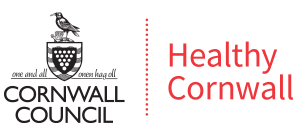NHS Health Check

This page is for people that have recently had an NHS Health Check.
If you'd like to get in touch with us here at Healthy Cornwall for a 1:1 conversation for healthy lifestyle advice and support after your Health Check you can book an appointment using the booking calendar below:
Alternatively you can contact us to arrange an appointment by:
Phone:
01872 324200
Email:
healthy.cornwall@cornwall.gov.uk
Below you will find information that explains your results in more detail as well as useful links and advice on simple changes you can make to your lifestyle that can help you reduce your risk of developing cardiovascular disease, including diabetes, heart disease, kidney disease, stroke, and some forms of dementia in the future:
Pulse
An irregular pulse could be a sign of atrial fibrillation. This is a heart condition that causes an irregular and often abnormally fast heart rate. It is important it is treated as it increases the risk of developing heart disease or having a stroke.
If your pulse was irregular your healthcare professional should have referred you to your GP for further investigations.
Helpful links/resources:
Find out more about an irregular pulse (atrial fibrillation)
Blood Pressure
Blood pressure is the pressure of blood in your arteries. Your arteries carry blood from your heart to your brain and to the rest of your body. You need a certain amount of pressure to get the blood moving around your body. It naturally goes up and down throughout the day and night and it’s normal for it to go up while you’re moving about.
If your overall blood pressure is always high, even when you are resting, you need to do something about it. High blood pressure is a serious condition.
You may be able to lower your blood pressure by making changes to your lifestyle. Things like eating a healthy balanced diet, cutting down on salt (to 6g a day), losing weight, being more active, and reducing alcohol intake will help.
Helpful links/resources:
Watch a short video on understanding blood pressure by the British Heart Foundation (BHF)
Find out more about blood pressure including treatment information on the BHF website
Check out 6 top tips to help lower your blood pressure
Cholesterol
Cholesterol is a fat that is carried around your body in the blood. It is vital that you have enough of it if your body is to work properly. However, too much cholesterol can cause your arteries to become blocked and increase your risk of heart disease and stroke.
If your cholesterol level is raised, you may be able to reduce it by making lifestyle changes. Eating a healthy, balanced diet that is low in saturated fat can help lower your cholesterol, as well as being more active, and not smoking. If you are overweight, losing weight should help reduce your cholesterol level.
Helpful links/resources:
Find out more about understanding your cholesterol results at HEART UK
Get some top tips on lowering your cholesterol on the NHS website
Find information on the top 6 cholesterol-busting foods
Find out more about familial hypercholesterolaemia on the BHF website
BMI
BMI is a tool to help you find out if you’re a healthy weight for your height.
Being within a healthy weight range contributes to good physical and mental health.
- If you are trying to lose weight, it is important to do this gradually.
- Try to eat a variety of foods so that you get the balance of nutrients that your body needs.
- Try to avoid unhealthy diets that recommend avoiding or only eating certain food groups.
- Eating a healthy balanced diet and being physically active has health benefits for everyone, regardless of their BMI.
If you are worried about your weight and would like help with eating well or getting more active then Healthy Cornwall can support you with making long-term healthy lifestyle changes.
Helpful links/resources:
Physical Activity
People who do regular physical exercise can lower their risk of heart disease, stroke, dementia and early death, as well as other major illnesses.
Aim to do 150 minutes of moderate intensity exercise a week. Moderate intensity means working hard enough so that you breathe harder, get warmer and your heart rate increases. For example, walking quickly, cycling, or pushing a lawn mower or vacuum cleaner.
Look for small ways to add more movement to your daily life, for example:
- Get off the bus one stop early and walk
- Walk short distances rather than driving
- Walk your dog for longer
- Take the stairs not the lift
- Use a bike to get around
Helpful links/resources:
Join Healthy Cornwall's Getting Active Community Facebook Group
Healthy Eating
Eating a healthy balanced diet can help reduce your risk of developing coronary heart disease, diabetes, and high blood pressure. It can also help lower your cholesterol levels and stop you from gaining too much weight.
You can make important changes to your diet by reducing the levels of sugar, saturated fat and salt. These can be hidden in foods so it can be helpful to check the labels.
Other changes include:
- Having smaller portion sizes
- Eating more fish
- Trying to eat at least five portions of fruit and vegetables a day
- Remember to drink about 6-8 glasses of fluid each day - water is a great choice
Helpful links/resources:
If you would like help with understanding a healthy diet and eating well then Healthy Cornwall can support you with making long-term healthy lifestyle changes.
Find out how you can eat less saturated fats on the NHS website
Smoking
Smoking increases both blood pressure and cholesterol and is a significant risk factor for heart disease. The great news is stopping smoking can reduce the health risks over a period of time. Other benefits include saving money and stopping your family and friends being exposed to second-hand smoke.
With free help from Healthy Cornwall’s trained stop smoking advisors, you’re up to three times more likely to quit for good, compared to going it alone. They’ll help you find the best way to quit and give you motivational support, as well as information and advice on how to manage your cravings, using nicotine patches and gum, or e-cigarettes.
If you’d rather not talk to someone, Healthy Cornwall can send you text messages with information and tips to help you quit, or you can join their link up with other people who are trying to stop.
Helpful links/resources:
Listen to Andreas' Stop Smoking Success Story
Check out the useful information, helpful tools and support available from Healthy Cornwall
Alcohol
To keep your risk of health harms from alcohol consumption low, the advice is the same for men and women:
- Drink no more than 14 units of alcohol each week
- Avoid binge drinking
- Spread your drinking over 3 or more days, with several alcohol-free days
If you wish to cut down the amount you’re drinking there’s lots of advice and support available on the Healthy Cornwall website. As well as following the advice above, some things you can try, include:
- Making a plan
- Switching to low or zero alcohol options
- Identifying your triggers
- Letting friends and family know you’re cutting down
Don’t give up if you slip up, and celebrate your achievements!
Helpful links/resources:
Diabetes
Diabetes is a condition where the amount of sugar in your blood is too high. It can cause damage to your blood vessels and this increases your risk of having a heart attack or stroke.
There are two types of diabetes. Type 2 diabetes is linked to being physically inactive and being overweight. Everyone can help reduce their risk of developing Type 2 diabetes by doing enough physical activity and eating a healthy balanced diet. See the links below to find out more, including the support that is available from Healthy Cornwall to help you with this.
At your NHS Health Check your healthcare practitioner may have asked you to have further tests if they think you are at risk of developing diabetes. If you are found to be at higher risk of developing Type 2 diabetes, there is lots of support available to help you, including access to a free NHS diabetes prevention programme which offers nine months free 1-1 coaching, group support and personalised advice around nutrition, movement and motivation.
Helpful links/resources:
Check out the Healthy Cornwall Physical Activity webpages for inspiration on getting active
Calculate Your Heart Age
During your NHS Health Check appointment, you had some tests and were asked questions about your lifestyle. This information was used to calculate your risk of developing heart disease or stroke in the next 10 years. Risk increases as you get older so for some people their risk of developing CVD in the next 10 years might be low because they are relatively young even though they have risk factors that mean their heart is not as healthy as it could be.
The following NHS Heart Age calculator can be used to tell you your heart age. Use the results from your NHS Health Check to help answer the questions:
Calculate your Heart Age on the NHS website
Chronic Kidney Disease
Chronic kidney disease is a long-term condition where the kidneys do not work as well as they should. It increases your risk of developing heart disease.
It is usually caused by other conditions that put a strain on your kidneys. These include high blood pressure, or having high cholesterol levels. If your blood pressure was high when you had your NHS Health Check your healthcare practitioner may have asked you to have further tests.
Chronic kidney disease cannot be cured but you can help prevent it by making healthy lifestyle changes and ensuring any underlying conditions you have are well controlled. Lifestyle changes include having good blood pressure, stopping smoking, eating a healthy balanced diet and exercising regularly.
Helpful links/resources:
Watch the NHS ‘What is CKD’ video on YouTube for more information
Dementia
Dementia affects the way the brain normally works, and this can make it difficult to do everyday activities. People who have dementia often forget things or get confused.
Dementia cannot be cured, but you can reduce your chance of getting dementia by keeping your brain healthy. Living a healthy lifestyle will help you keep your brain, as well as your heart, healthy. What’s good for your heart is also good for your brain!
Helpful links/resources:













